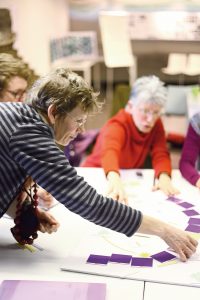Online age-friendly housing ‘Design Hub’



The Housing LIN is a sophisticated network bringing together over 40,000 housing, health and social care professionals in England and Wales to exemplify innovative age-friendly housing solutions for older people and people with chronic conditions. For example, well-designed, accessible housing and neighbourhoods that offer an attractive lifestyle choice in later life as well as ‘care ready’ accommodation that can be adapted to meet health and wellbeing needs of people as they age.
Recognised by government and industry as a leading ‘knowledge hub’ on specialized housing, the Housing LIN’s’ go to’ online and regional networked activities:
The Housing LIN’s managing director, Jeremy Porteus, is author of the influential Housing our Ageing Population: Panel for Innovation (HAPPI) reports on age-friendly housing for the All Party Parliamentary Group on Housing and Care for Older People, including a plan for implementation. This has seen the housing sector adopt the HAPPI design principles as exemplary practice in meeting the housing aspirations of an ageing population. He is also joint author of a forthcoming Royal Institute of British Architects (RIBA) publication on Age-Friendly Housing as part of their Futures series.
Website: https://www.housinglin.org.uk/Topics/browse/Design-building/
Main target group: Older people in general
Other target group(s): Older people with chronic health conditions or disability
Sector(s): Health, Housing, Long-term care, Urban development
Other sector(s): Planners; architects
Desired outcome for older people:
Meet their basic needs
Other Issues: Planning
Name: Porteus, Jeremy
Email address: j.porteus@housinglin.org.uk
Preferred language(s): English